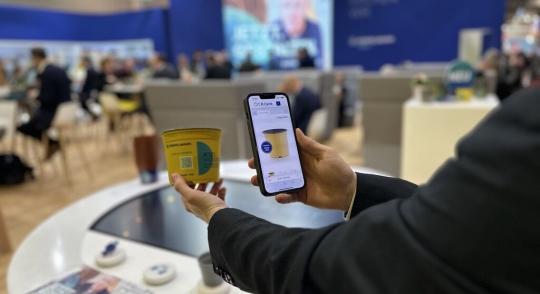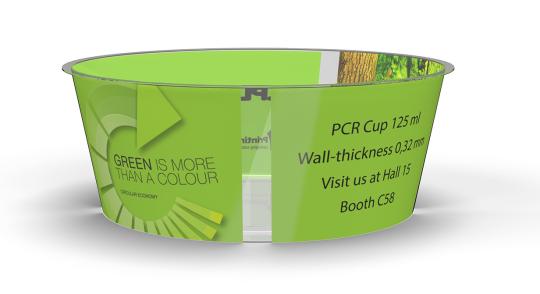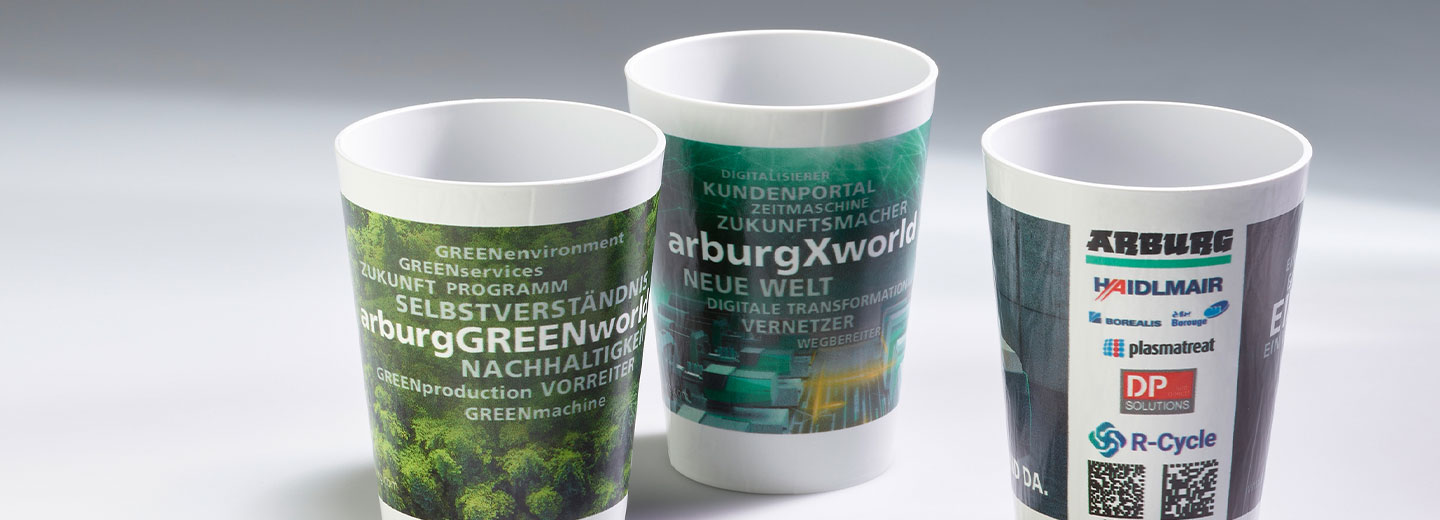

Sustainable PP drinking cups from "smart" turnkey line
Digitalization, automation and assistance systems make daily work in plastics processing easier. As a practical example of what “smart” turnkey systems can achieve, ARBURG has designed a complex production cell. The fully automated system produces PP drinking cups and subsequently finishes them in an integrated digital printing station. Thanks to a data matrix code and R-Cycle, each cup is 100 percent traceable and can be separated by type. The application sets new standards in plastics processing in terms of digitalization, automation and circular economy.
Networked and 100 percent traceable
The heart of the turnkey system – an IT-networked ALLROUNDER 370 A injection molding machine – produces PP drinking cups using a single-cavity hot runner mold. Handling is performed by a vertical robotic system (Multilift V 20). The cup is removed, first fed to a plasma treatment and then to a digital printing station. Product finishing is thus integrated directly into the production cell. In addition, each cup is printed with a data matrix code on which the recycling-relevant information for recycling is stored. The end products can thus be returned to the cycle after the use phase, sorted by type.
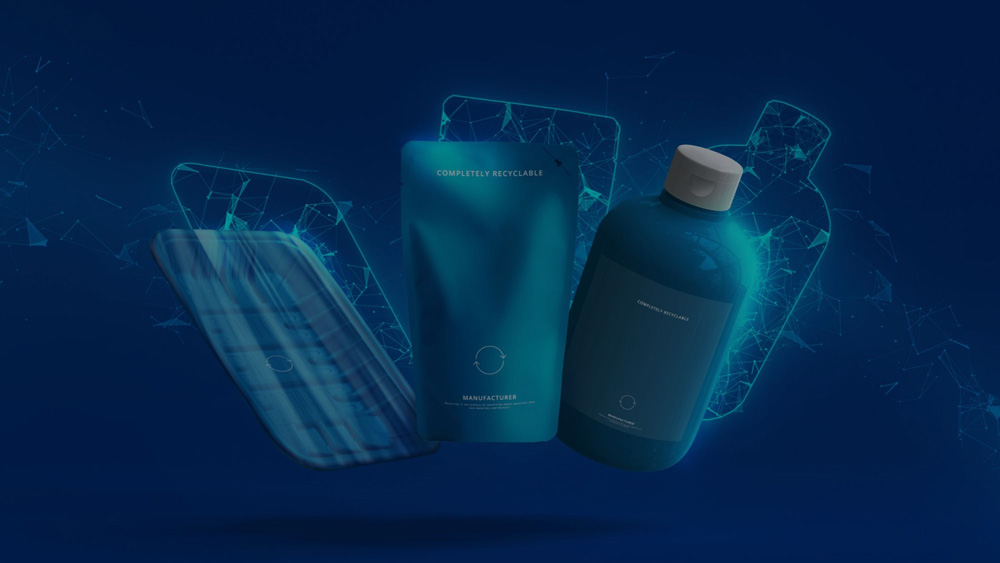
For standardized networking, all ARBURG injection molding machines are equipped with an IIoT gateway (industrial internet of things) as standard. In this way, process-, quality-, service- or recycling-relevant data can be made available for higher-level software tools and platforms. By connecting to software such as the ARBURG host computer system or an ERP, production data can be collected and analyzed in real time, significantly increasing production efficiency and transparency.
As an R-Cycle partner, ARBURG uses the practical example of drinking cups to demonstrate how recycling-relevant information on the ingredients used is transmitted to the R-Cycle platform. In this way, each cup receives a digital product passport. Data on raw materials and colouring agents, for example, is already transmitted during injection molding. After the use phase, the cups can be precisely sorted and high-quality recyclate recovered in this way to close the cycle of recyclable materials.
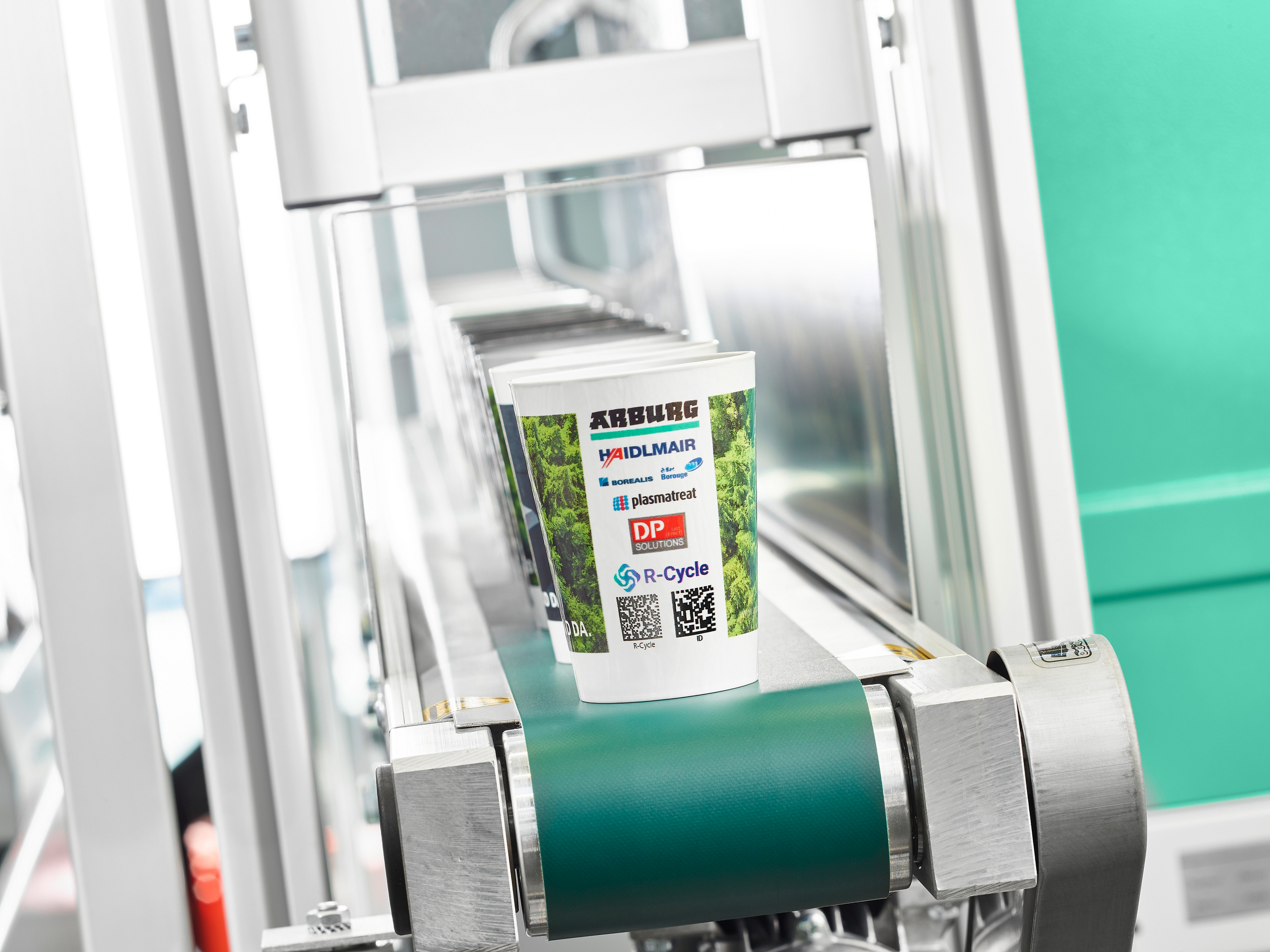

A digital product passport is generated for each cup in the R-Cycle standard, which can be retrieved via data matrix code and thus enables traceability and separation by type.
More Success Stories from R-Cycle
